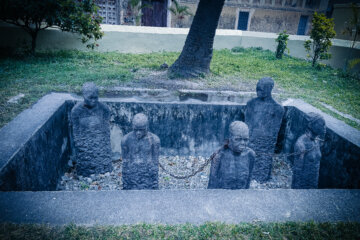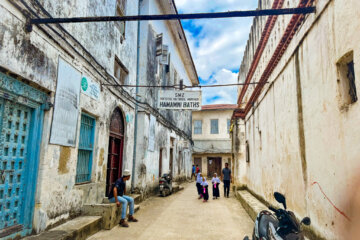Visiting Negative World Histories: Lessons and the Importance
Human history is a tapestry of events—both uplifting and heartbreaking. Across the globe stand testament sites, encapsulating the darker epochs of our past. From the haunting remnants of Auschwitz to the silent echoes of Hiroshima, and from the chilling landscapes of Cambodia’s killing fields to the apartheid walls of South Africa, these memorials are enduring markers of our collective memory.
Visiting such places transcends “dark tourism.” It’s a journey into the depths of human history, witnessing the capabilities of humans when swayed by prejudice, ignorance, or power. These sites compel visitors to confront the cruelties of the past and grapple with often uncomfortable truths.
What lessons do these solemn places offer?
- Empathy and Compassion: Immersing oneself in spaces where countless faced unfathomable horrors deepens our empathy. They serve as poignant reminders of the need for compassion today.
- The Consequences of Silence: These sites stand as evidence of the ramifications when societies remain passive or blind to rising extremism or intolerance.
- The Resilience of the Human Spirit: Amid tales of cruelty, there are also stories of hope, resistance, survival, and indomitable spirit.
- The Importance of Education: Ignorance often fuels hatred. Educating ourselves about these histories is essential to avert the repetition of such events.
- The Impermanence of Time: These remnants highlight life’s transience, urging us to value peace and stability.
- Unity in Grief and Remembrance: Visitors, irrespective of their backgrounds, often find a collective sense of reflection, fostering understanding and unity.
For those eager to delve deeper into these topics, several reputable sources offer insights:
- “Auschwitz: A New History” by Laurence Rees: This deep dive into Auschwitz is built on interviews with survivors and Nazi personnel.
- “Hiroshima” by John Hersey: A journalistic recounting of the experiences of six survivors of the atomic bomb dropped on Hiroshima in 1945.
- “First They Killed My Father: A Daughter of Cambodia Remembers” by Loung Ung: This memoir narrates the terrors of the Khmer Rouge era.
- “Long Walk to Freedom: The Autobiography of Nelson Mandela:” An intimate look at Mandela’s life and his fight against apartheid in South Africa.
- “Sites of Memory, Sites of Mourning: The Great War in European Cultural History” by Jay Winter: An exploration of how different societies memorialized the First World War.
- “Dark Tourism: Practice and Interpretation” edited by Philip R. Stone, et al.: An academic study of the phenomenon of dark tourism and its societal implications.
In essence, visiting the memorial sites of negative world histories is more than a touristic endeavor. It is a transformative experience, demanding introspection. Engaging with these histories and drawing from reputable sources, we not only honor the memories of those who suffered but also equip ourselves with knowledge, fostering a more empathetic and educated society.
In Reverence:
“To every soul whose story is etched into the annals of history: We see you, we remember you. As the world turns and the years pass, we carry with us not just the lessons, but the very essence of your journeys. Through your experiences, may we find the compass to guide us to a world rooted in understanding, peace, and compassion. Let’s honor every life by working towards a tomorrow where such sorrows are tales of the distant past.”
A Reflection for the Lost Lives:
“In the vast expanse of the universe, where memories and time intertwine, we pause to remember the lives that were dimmed in history’s darker moments. May the echo of their existence remind us of the profound connections we share. Inspired by their stories, let us summon the wisdom to recognize the seeds of prejudice, the strength to champion love over hate, and the courage to pave paths of unity and understanding. Guided by their memories, let’s cultivate a world that thrives in harmony and mutual respect.”





0 Comments